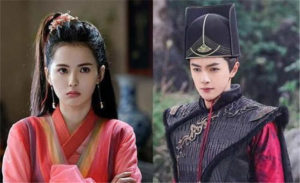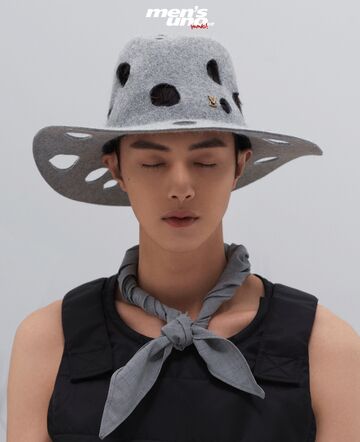The Sleuth of Ming Dynasty Episode 13 Recap
> The Sleuth of Ming Dynasty Recap
As Dong'er was about to be captured, Sui Zhou arrived and fought fiercely against the multitude of assailants, successfully rescuing Dong'er. Meanwhile, Wang Zhi tracked the fleeing Qian Tai and uncovered a larger mastermind behind him, named Li Zilong. Li Zilong was furious, exclaiming that the network they had painstakingly built over many years in the capital was utterly destroyed by Tang Fan. He declared his intention to kill Tang Fan.
Wang Zhi intended to capture the ringleaders, but Li Zilong was prepared. He escaped quickly through a secret underground tunnel before Wang Zhi could act. To buy time for Li Zilong, Qian Tai handed over a ledger detailing his years of bribes to Commander Wan before taking poison and dying. This forced Wang Zhi's investigation to a halt. He dispatched men to determine where the secret tunnel led and became increasingly curious about this mysterious mastermind.
Sui Zhou's injury was bone-deep; merely applying topical medicine would only stop the bleeding. Pei Huai had to cauterize the wound with a hot iron to seal it, then gradually apply medicine for recovery. Tang Fan watched Sui Zhou in agony, remarking that such treatment was worse than torture. Pei Huai, a medical enthusiast, explained that this method was necessary for deep wounds and often used in the army, urging Tang Fan to observe a dissection sometime to understand.
Wang Zhi met with Commander Wan, burning the incriminating ledger in front of him to secure a favor. The ledger revealed numerous large payments, including Commander Wan's "birthday" presents, which happened more than twice a year. Wang Zhi pointed out that he himself, having grown up in the palace, only knew the birthdays of the Emperor and Noble Consort Wan, having long forgotten his own.
Despite the favor, the Emperor was enraged to learn of such heinous crimes occurring in the capital, right under his nose. He publicly executed the child traffickers, warning that such audacity indicated official involvement. The Emperor reiterated that he established the Western Depot because the Eastern Depot and Imperial Guards had monopolized power and kept him in the dark. He demanded Wang Zhi investigate thoroughly, reminding him that the thousands of kidnapped children were also the Emperor's children.
Commander Wan, witnessing the Emperor's fury, grew anxious. Soon after the kidnapping case subsided, Tang Fan was summoned by Sun Daren (his superior from Shuntian Prefecture). Sun Daren scolded Tang Fan for his unauthorized trip to Jiangxi, disobeying orders, and failing to secure credit for Shuntian Prefecture in previous cases, threatening to deduct his salary further. Tang Fan, indifferent to the deductions, was then assigned a trivial case: finding a lost fur coat belonging to a minister.
However, Tang Fan insisted on investigating a long-dormant serial murder case that had re-emerged in the capital, a cold case that even the Imperial Guards and Eastern/Western Depots hadn't solved. Sun Daren reluctantly agreed that Tang Fan could take the serial murder case, but only after he found the fur coat. While inspecting vehicles entering the city, Xue Bing discovered a suspicious wagon containing a female corpse. The body was disemboweled, highly similar to past cases.
Interrogation of the driver led to the confession that the murderer was Pei Huai. Tang Fan had been investigating the old heart-extraction cases, noting that the killer's technique had matured over the years, with the latest victim's wound being a precise, thin line. He deduced the murders had been occurring much longer than initially thought, possibly starting eighteen years ago, not just six or seven as official records suggested.
Sui Zhou then informed Tang Fan that he had captured a suspect who was likely the killer. Tang Fan rushed to the Imperial Edict Prison, only to find that Sui Zhou's prisoner was Pei Huai. Sui Zhou explained that during a routine Imperial Guards patrol, they intercepted a female corpse being transported out of the city, disemboweled in a manner highly similar to the serial murders.
Following the transporter's lead, they traced it to Pei Huai, finding him dissecting another female corpse at his clinic. Tang Fan, knowing Pei Huai for years, insisted he was merely a medical enthusiast and incapable of such atrocities. He believed Pei Huai could not be the serial killer, but Sui Zhou argued that before the law, only evidence mattered, and with witnesses and physical evidence, along with a matching timeline, Pei Huai was the prime suspect.
Sui Zhou pointed out that the serial murders began seven years ago, precisely when Pei Huai arrived in the capital. Tang Fan immediately countered that the timeline was problematic and urged for Pei Huai's release, reiterating his trust in his friend, just as he had trusted Sui Zhou's innocence when he went to Jiangxi to save him. Pei Huai, observing their argument from his cell, told them to take their quarrel outside.
Sui Zhou placed Pei Huai in a single cell and promised Tang Fan not to torture him. Tang Fan worked tirelessly to prove Pei Huai's innocence. He summarized four key points to Sui Zhou. Firstly, based on Old Sun, the coroner's records, all serial murder victims died from heart removal, while Pei Huai's dissected bodies mostly died from acute illnesses and were several days old.
Secondly, Pei Huai purchased the bodies, most of which were unclaimed, and even bought a plot of land outside the city to bury them, unlike the killer who simply discarded bodies. Thirdly, their methods differed significantly: Pei Huai performed full dissections to understand causes of death, while the killer only extracted hearts.
Lastly, Pei Huai had only been in the capital for seven years, yet Old Sun's records indicated the heart-extraction cases began eighteen years ago, when Pei Huai was only twelve or thirteen years old and not in the capital. Sui Zhou acknowledged the validity of Tang Fan's points but insisted there was still no direct evidence to exonerate Pei Huai. As they were discussing, Xue Bing arrived with urgent news.
A child shepherd had found Wuyun gravely injured outside the city and reported it. Wuyun had suffered eleven bone fractures and various internal organ damages. Pei Huai examined Wuyun but was uncertain if he could save him. Seeing Wuyun's critical condition, Tang Fan rushed to Dora's home, only to find she was also missing, and no one had been there for three days. Wuyun eventually regained consciousness but was delirious due to a sedative, poppy, given by Pei Huai.
Through his incoherent words, Tang Fan only managed to discern the name "Well-doer-Zhu." Sui Zhou identified "Well-doer-Zhu" as Zhu Jianmou, a royal prince known for his philanthropy. Tang Fan suggested they visit him immediately, hoping he might know Dora's whereabouts. Sui Zhou, though initially reluctant to keep Wuyun, agreed to allow him to stay for three more days, regardless of his recovery. Upon arriving at Zhu Jianmou's residence, Tang Fan asked if he remembered Dora.
Zhu Jianmou confirmed he remembered her, recalling her asking for help to find a missing girl and meeting her twice afterwards, including recently at the orphanage. Tang Fan informed him that the missing girl was his sister, Dong'er, who had been found safe. However, Tang Fan then revealed Dora herself was now missing. Zhu Jianmou expressed surprise and concern, assuring them that despite not knowing Dora's current location, he would do his best to help find her, considering their friendship. Tang Fan expressed his gratitude to the Prince.














